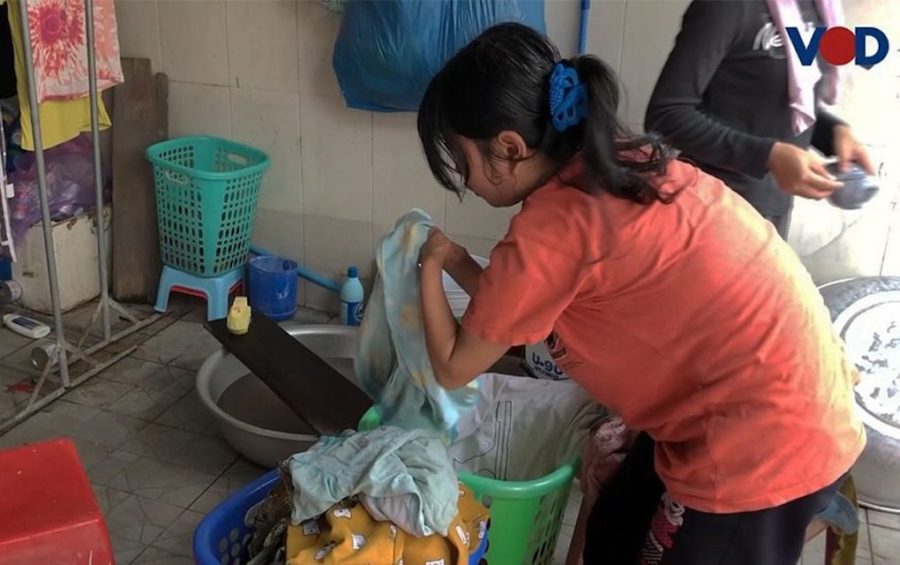Wage cuts hit workers with lower education, and those in the provinces, in the first four months of the year, according to a new survey, with a labor advocate predicting salary reductions to continue for the foreseeable future.
The report, conducted by think tank Future Forum and the Angkor Research Company, found that among the 1,675 workers surveyed, 425 people, or 25 percent, reported no income in April — a sharp increase from the 4 percent who had no income in January.
Workers from a range of industries were surveyed, but entertainment and sex workers saw the greatest drop in average income between January and April, seeing an 84.5 percent loss, followed by hospitality and service workers who lost 56.4 percent of their wages on average, and construction workers who lost 36.8 percent.
Workers in the four provinces surveyed — Kampong Speu, Kampot, Siem Reap and Svay Rieng — all saw bigger wage decreases between January and April compared to Phnom Penh, and those with lower levels of education, particularly those who received almost no education or schooling in pagodas, also saw relatively greater average wage decreases.
Khun Tharo, project coordinator for labor rights group Central, said that while Covid-19 made it harder for workers with lower incomes than those with higher, the biggest factor driving wage reductions was the sector they worked in.
With many workers losing entertainment, hospitality and construction jobs, many were switching to informal gigs like assisting shop owners and doing more casual food preparation, which put workers in less stable conditions, he said.
“I can say the most marginalized groups already earn less. It’s because of their education, because they’re working in small restaurants, and other enterprises that are not working under the Labor Law,” he said.
The gap in average wages between workers with formal employment and those with informal jobs increased slightly between months according to the report, from a $62 difference in January to a $64 difference in April.
Labor Ministry spokesperson Heng Sour would not say whether the report aligned with the ministry’s own surveys of worker conditions because they cover different sectors and populations. However, he said that the government would continue providing payments to suspended workers in the garment and tourism sectors, as well as IDPoor payments, until the “situation is easing or over.”
“Covid-19 pandemic disturbs everybody’s income, lifestyle and working condition,” he said in a message. “The government is acknowledging the impact and designs the intervention policy for those who are hard hit by the pandemic, i.e. those live on the poverty line or slightly above the poverty line.”
Tharo said he was concerned that the negative impacts of the global economic slowdown might stretch longer than the government could support workers, because there were few alternative employment options. Boosting Cambodia’s exports in the agricultural sector, which experienced lower wage gaps according to the report, might help in the long term, Tharo said, but he thought the government should continue subsidies and do what it can to protect industries, pointing to the E.U.’s decision to reduce Cambodia’s duty-free access over human rights concerns.
“I think it’s very important for the government to switch its political will and make sure those markets are still there for Cambodia. You can’t wait [to act] until the countries are lost,” he said. “Also it depends on the global recovery as well, so beyond that before the global recovery, we’re still not in a position for economic recovery.”













